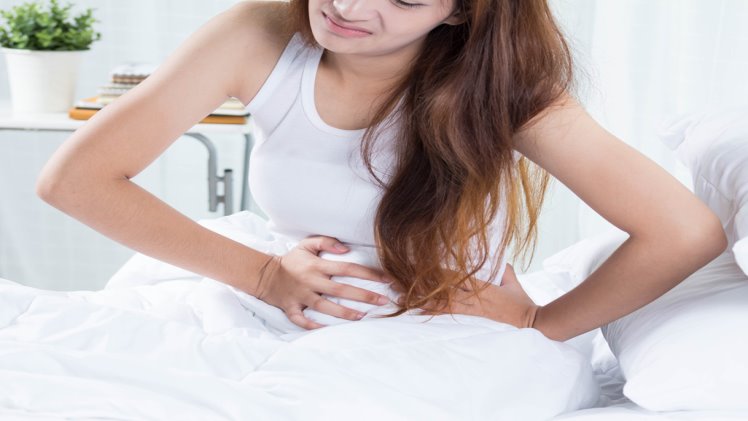If you have even experienced one urinary tract infection in your life you will know that it’s one experience you do not want to repeat. Burning when you pee, pain, a constant need to visit the toilet again and again, back ache, bleeding, and a general feeling of being unwell are all signs of a UTI. For some women however the problem is recurrent, and the misery of a UTI is something they have to deal with on a very regular basis.
There have been many studies into ways to help women who experience recurrent UTIs, but one area which has been focused upon is whether probiotics could actually help with UTIs in women especially.
What Causes a Urinary Tract Infection (UTI)?
A UTI occurs when bacteria is introduced into the urinary tract and causes an infection. This is actually an umbrella term, because a UTI is an infection which involves any part of the entire urinary system, including the bladder, ureters, kidneys, or the urethra. Performing a urine test is one way to determine a urinary tract infection. The most common types of UTIs usually affect the urethra and the bladder, and these give you that classic feeling of constantly needing to pee, whether you just went to the toilet ten seconds ago or not. It is an agonising, horrible feeling which is not at all pleasant.
Women are more at risk of experience a UTI than men are, and for the women who experience these infections regularly, finding a way to treat them is vital. Doctors may prescribe prophylactic antibiotics for women who have very regular UTIs, after the potential cause has been ruled out, but other holistic options may be explored too.
The symptoms of a UTI are:
- A very strong need to pee, which is persistent
- Burning when you pee
- Only very small amounts of urine are passed
- Cloudy urine, which may have tinges of blood in it, or very dark urine, e.g. brown
- Urine which smells very strong
- Pelvic pain
What Are Probiotics?
In order to properly understand why probiotics might be able to help with UTIs, we first need to understand what they are.
Probiotics are good bacteria, and they live naturally in the gut and other places within the body, e.g. the female genital tract. The good bacteria help to create a harmonious balance with any bad bacteria which may be found there, helping to avoid illness and infection. The main benefit of taking a regular probiotic supplement, or from increasing the amount of probiotic content in your natural diet, is around improved gut health. First and foremost, probiotics help to improve the smooth running of the digestive system, but there are many other benefits which have been found too. One of those is the possible decrease in persistent urinary tract infections in women, as well as a reduction in yeast infections (thrush).

How Might Probiotics Help With Recurrent Urinary Tract Infections?
Probiotics are still an ongoing source of confusion for many researchers. A lot is known about how they work, but not a huge amount is known about confirmed benefits, and less about side effects. Studies are ongoing, but the main benefits are consistent with what has been found so far in various trials. Basically, probiotics are great for gut health, boosting the immune system, and may also help with UTIs.
Studies have shown that by introducing more in the way of good bacteria into the body, the overall amount of bad bacteria is reduced and balanced out. Of course, nobody can live without no bad bacteria in their system at all, because the natural order is to have balance between good and bad. The whole point of the good bacteria is to stop the bad guys from overrunning the system and causing illness and inflammation.
According to Minority Health, certain strains of probiotics are considered beneficial for urinary tract health, especially for women who regularly experience unexplained urinary tract infections. The above study concluded that L. rhamnosus GR-1 and L. reuteri RC-14 are two of the most effective for helping to balance out bad and good bacteria in the female urinary tract. Some studies also showed that L. casei shirota and L. crispatus CTV-05 might also be useful for certain women.
How to Take Probiotics
It is possible to increase the amount of probiotics in your system through your diet, but many people struggle with this alone. This is especially the case if you are following a strict diet such as keto or paleo. Yogurt is the easiest food to consume which is high in natural probiotics, but it’s important to look for types of yogurt which state ‘live and active cultures’ on the pot. These have the highest probiotic content within them.
Other high probiotic foods include sauerkraut, fermented foods, pickles, gherkins, traditional buttermilk, miso, and even certain types of dark chocolate. Having said that, getting enough to make a difference can be difficult through diet alone.
Because of this, supplements have become very popular. Probiotic supplements are usually either a tablet, capsule, or a yogurt-based drink which you take once per day. The market is flooded with probiotic supplements, and there are countless strains on offer too. For this reason, having a chat with your doctor before you begin taking supplements is a good idea, to check you don’t have any contraindications to use, but also to find out which product might be best for you.
Be sure to shop around and read in-depth reviews, not only to find the most effective product for your problem, but also for your pocket too – you are going to be taking this supplement for a long time, daily, so you need to find a cost effective choice too.
Whilst more research needs to go into the use of probiotics, possible side effects, and more information on dosages and how to take them to get optimum results, the current information is very encouraging indeed. For women who regularly experience UTIs, just one supplement a day could be enough to either eradicate the problem, or at least reduce it drastically. That’s good news, for sure!

